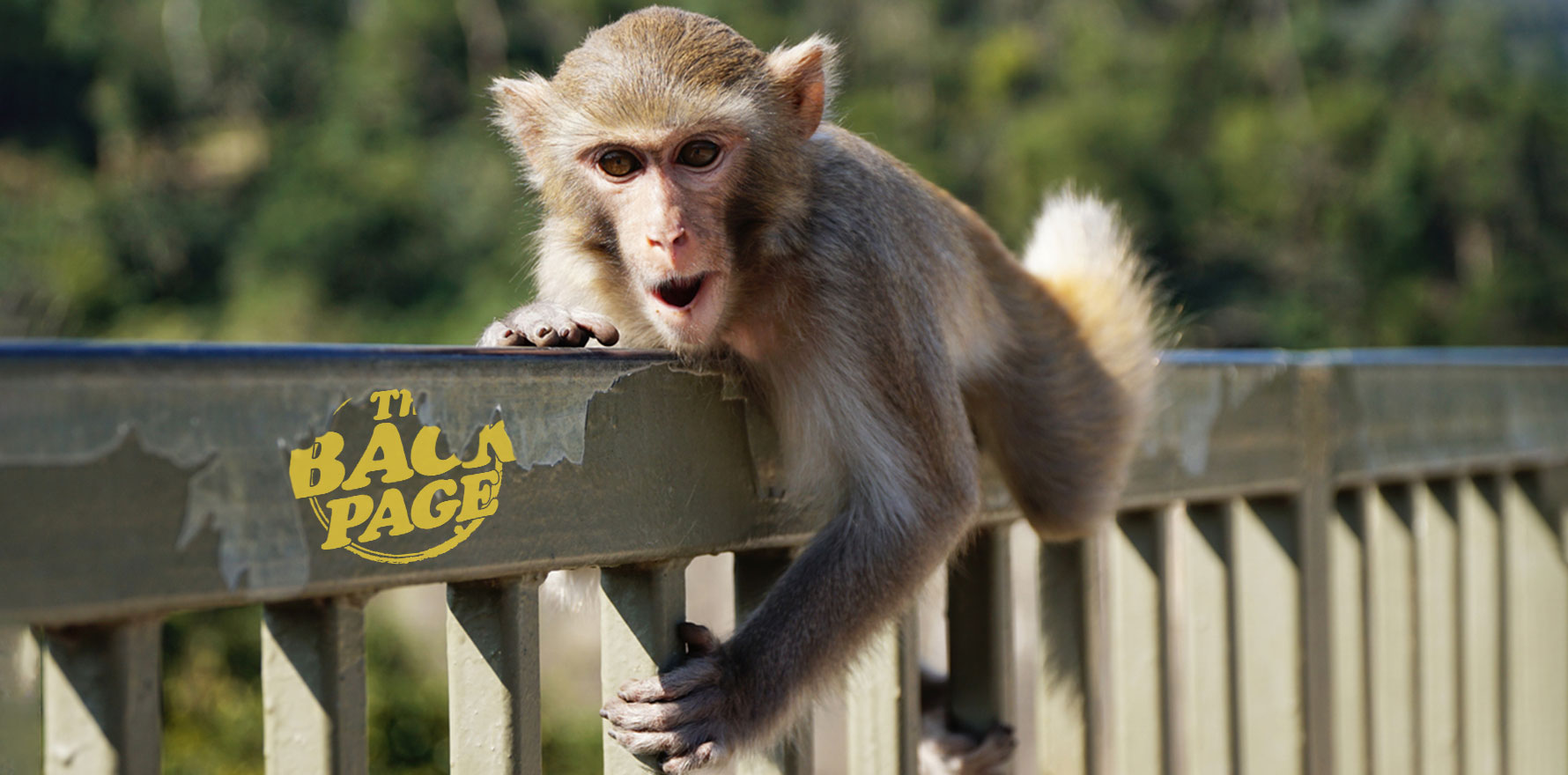A gang of macaques went on the lam after someone forgot to lock the doors.
Who doesn’t love a good monkey yarn?
From the Planet of the Apes franchise to post-apocalyptic horror film 28 Days Later, our primate cousins provide endless fodder for story-telling and the imagining of alternative worlds.
And because humans and other primates share such a startling high percentage of the same DNA, our hairy brethren are also a hugely exploited resource for the medical sciences industry.
Which makes the recent escape of more than 40 research macaques from a US facility run by the dystopianly named Alpha Genesis organisation a keenly reported news event.
Alpha Genesis is one of the largest monkey breeders in the world and has more than 40 hectares of quarantine, holding and research space in the town of Yemassee, South Carolina.
The company raises rhesus macaques to sell to medical and other researchers and, according to its website, it “provides the highest quality non-human primate products and bio-research services worldwide” as well as many “non-human biological products” including serum, plasma, whole blood, peripheral blood mononuclear cells and tissue samples.
Which is why you’d think they’d employ staff that are smart enough to lock the doors behind them to ensure the macaques don’t stage a jailbreak.
Apparently not.
“The incident … involved a new enclosure and occurred because the caretaker who was doing routine cleaning and feeding failed to secure two separate doors,” Alpha Genesis CEO Greg Westergaard told media. “It was purely human error.”
If this was a football match, it would be Humans nil, Monkeys 1.
But it gets worse. Amazingly, it’s not the first time the monkey inmates at Yemassee have made a scamper for it.
Back in 2014, 26 of the animals managed to breach the perimeter and in 2016 a further 19 went AWOL, although in the latter case the escapees were efficiently returned to the compound just six hours later.
The incident has also revived an interesting argument as to the legal status of animals once they have escaped into wild, with some experts arguing the critters may have a legitimate claim for freedom as they no longer belong to the company. You can read about that proposition here.
As of most recent reports, 30 of the 43 missing macaques had been recaptured, with Alpha Genesis confident it can entice the remaining fugitives out of the surrounding woodlands and back into captivity using the lure of food and treats.
The company was also quick to assure the public that the escapees posed no threat to human health because the roaming macaques were all females weighing around 3kg and were “too young to carry disease”.
Yeah, right. But you guys call yourselves Alpha Genesis, which in our minds is only one step away from being named “Dr Evil Enterprises”, so forgive us for raising a sceptical eyebrow when you tell us we have absolutely nothing to worry about.
Send banana-flavoured story treats to penny@medicalrepublic.com.au.


